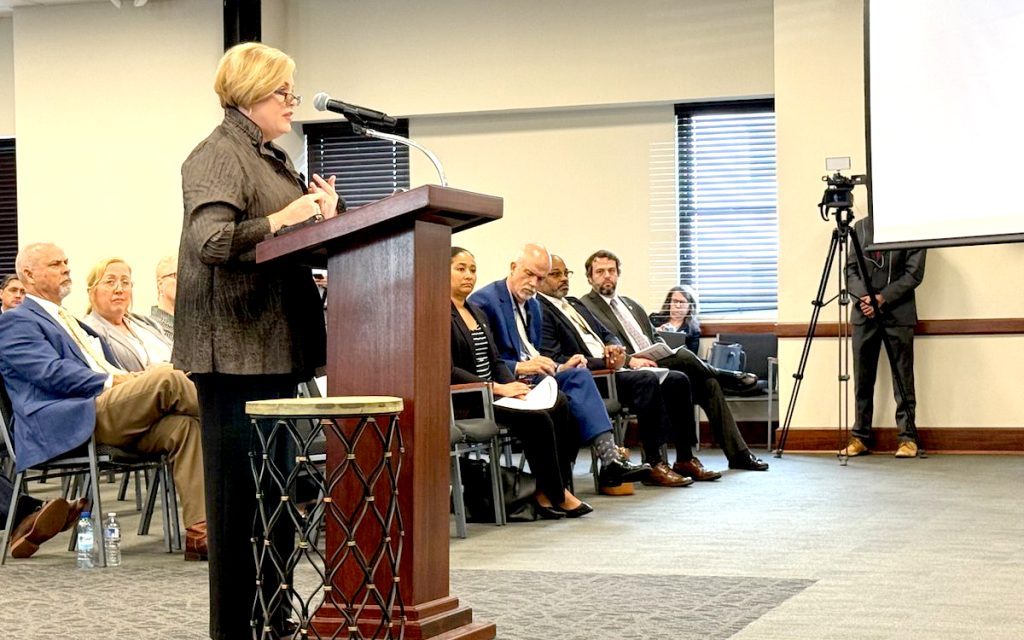By Ivana Hrynkiw
Leigh Gwathney, the chair of Alabama’s parole board, testified before Alabama lawmakers on Wednesday to address concerns about the board’s sharp decline in parole grants last year. Lawmakers from both parties questioned Gwathney about the board’s decision-making process, lack of transparency, and why inmates aren’t allowed to attend their own parole hearings. Gwathney, who is known as the board’s most reliable “no” vote, responded that parole officers meet with inmates before hearings, making their attendance unnecessary. This response sparked quiet laughter and frustration among family members in attendance, especially those whose loved ones had been denied parole.
Tim Mathis, whose son was killed in prison after being denied parole, voiced his frustration, criticizing the parole guidelines as unclear and ineffective. Mathis believed his son might still be alive had he been released.
Sen. Clyde Chambliss, the chair of the Joint Prison Oversight Committee, led many of the questions, noting that despite meeting with Gwathney in January, the committee still had not received satisfactory answers. Rep. Chris England, a Democrat from Tuscaloosa, bluntly stated that Gwathney’s testimony had made the case for increased oversight of the parole board. Lawmakers criticized the board’s adherence to outdated guidelines from 2018 and questioned why these guidelines hadn’t been reviewed as required by state law. Gwathney’s answers about the board’s low rate of following its own criteria only added to the tension, with Chambliss pointing out that the board aligns with its guidelines less than 25% of the time.
England reminded the board that lawmakers had raised these same concerns as far back as 2019. He questioned Gwathney’s practice of adjusting inmates’ scoresheets without clear criteria, arguing that either the guidelines or the process itself is flawed. The committee, frustrated by the lack of answers, set a November deadline for Gwathney to address their concerns, underscoring the need for transparency and accountability in Alabama’s parole system.










